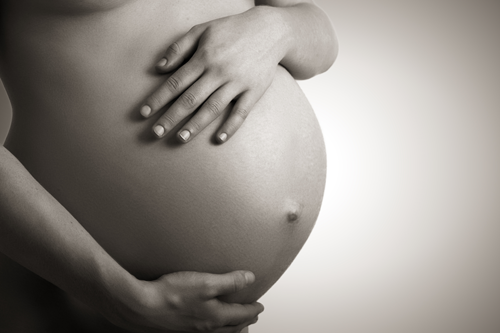Like so many people, women in particular, I was never very comfortable in my own skin. But my discomfort had less to do with wanting to be a blonde instead of a brunette or wishing for blue eyes instead of hazel. Though I did of course occasionally covet different physical traits than the ones I was born with, it wasn’t the specifics of my humanity that posed a problem for me; instead, it was the human experience itself that I wanted to escape. For as long as I can remember, my body felt like a prison; my earliest fantasies all revolved around transcending its clumsy, leaden limitations and learning to fly.
I’m not sure why this is, exactly. It probably had something to do with the mystical, bordering-on-ascetic version of Catholicism my mother practiced, combined with her Twiggy-influenced standard of beauty. When I was nine years old, her suggestion that I go on a diet led to a life-changing discovery: Starving myself resulted in a state of hazy disconnect far preferable to the all-too-vivid physical sensations associated with well-fed flesh. Even better, constant hunger did a fine job of obliterating the profound sadness I felt regarding my absentee father. As you might have already guessed, this revelation of sorts quickly spiraled into an eating disorder that lasted, on and off, for well over a decade. Through that same span of years, I would also come to find out that, like starvation, various substances (from psychedelics to narcotics) provided a similar sense of temporary, disembodied euphoria. By the time I reached my early twenties, my self-destructive tendencies had almost completely taken over my life—the life I was slowly and systematically rejecting, the life I was, I now realize, half-heartedly attempting to end.
And then, at the age of 24, something happened: I found myself quite unexpectedly pregnant. I was eight weeks along when I saw those two pink lines appear; the next thing I remember is sitting on the floor in the pregnancy and childbirth section of a nearby bookstore, staring at a color photo of an eight-week-old fetus, its tiny pink finger nubs and the dark spots where eyes were beginning to develop. Tears streamed down my cheeks. Somehow, this burdensome, useless body I’d spent so many years resenting was actually creating a life. And if a new life was beginning inside me, did this not mean that I, too, was truly alive? In that moment, I realized that life really is a force—a force much stronger than my own long-standing reluctance to embrace it. Humbled, I felt my soul relax into my body for the first time, anchored in my belly. Life didn’t wait around for me to choose it; instead, it chose me. Suddenly, I was grateful.
One day, sometime after the second child and the umpteenth call from the school nurse, in between the fifteenth visit to the emergency room and the twentieth parent-teacher conference, you realize, Oh, hey! Look at that. Somehow, we made it this far.
Now 37 years old and pregnant with my third child, I’m reminded of how the process of bringing life into the world for the first time forced me to finally make peace with the fact that I am, in fact, of the world—and to realize that the only way to truly transcend the human experience is to embrace it fully.
Now 37 years old and pregnant with my third child, I’m reminded of how the process of bringing life into the world for the first time forced me to finally make peace with the fact that I am, in fact, of the world—and to realize that the only way to truly transcend the human experience is to embrace it fully. Again, suddenly, I’m grateful.
Click here to see Rose’s tips for healthy and happy relationships


